How do you get rid of a classic car without the usual hassle? In this guide, we’ll walk you through selling, valuing, and preparing your cherished vehicle for its next owner. For those considering alternative routes, we’ll cover donations and eco-conscious disposal too. Quick and easy to scan, our advice honours both your classic car’s worth and your time.
Key Takeaways
- For an accurate sale price, compare your classic car to similar recent sales and consult experts to evaluate its true market value.
- You’ve got several selling options: direct private sale, thrilling auctions, or consignment dealerships—pick the one that fits your comfort level and willingness to do legwork.
- Get your classic car ready to impress: clean every nook, fix up the fiddly bits, and line up all the paperwork to show it’s been pampered.
Determining the Value of Your Classic Car
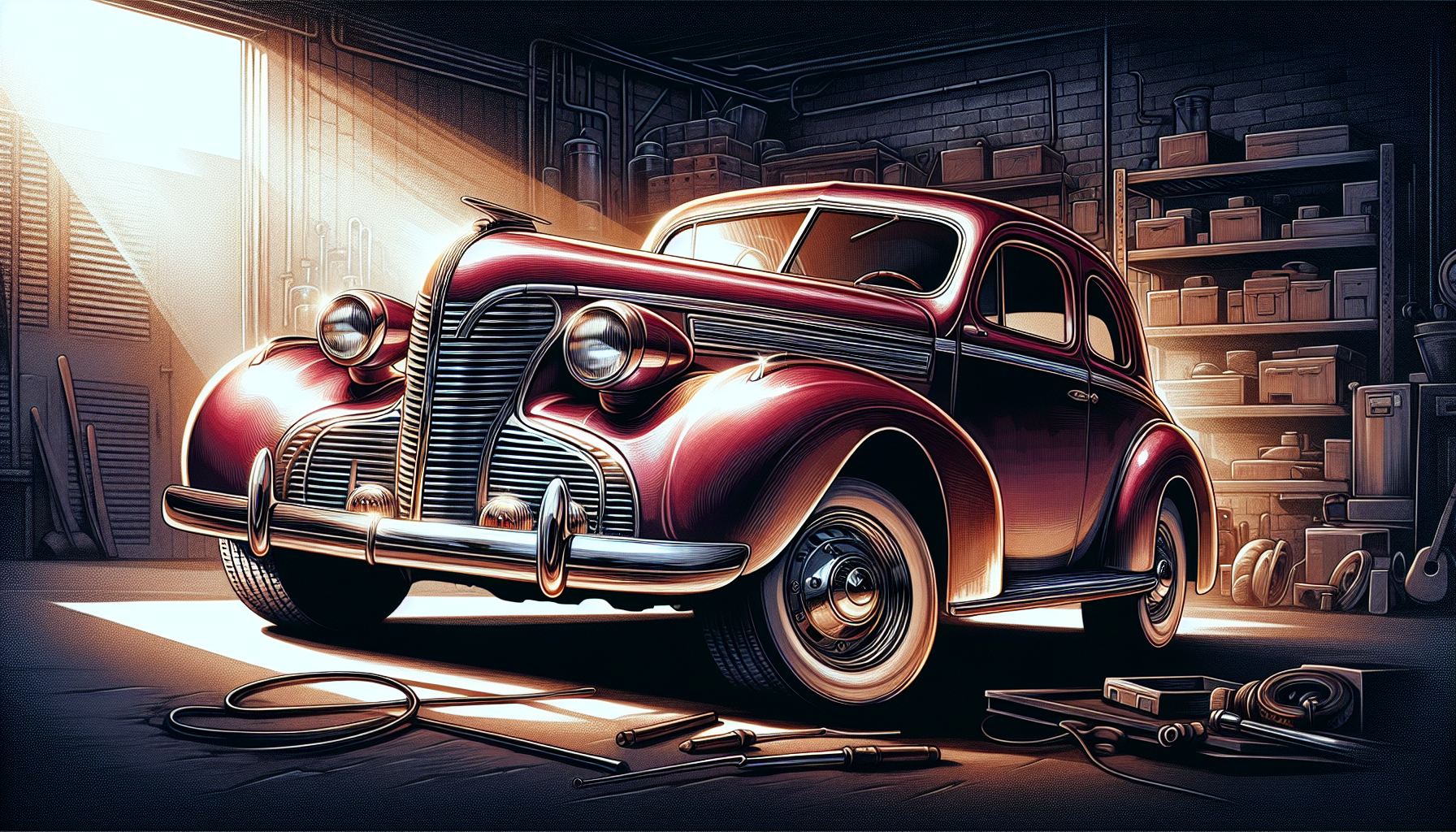
Determining the value of your classic car is the first step in your selling journey. It’s all about finding a balance – a price that reflects your car’s worth and is also attractive to potential buyers. But how do you accurately determine the value of a precious piece of history on four wheels? We’ve got two key strategies: researching comparable sales and consulting classic car experts.
Research Comparable Sales
Comparing your classic car to similar ones that have sold recently can provide a good estimate of what the market is willing to pay, including its trade in value. This involves checking out online platforms such as Classic.com and using tools like the Hagerty Valuation Tools. But wait, there’s more to it than just matching the make and model. Factors like the car’s condition and mileage play a crucial role in determining its value, especially for damaged vehicles. Not all 1965 Mustangs are created equal after all.
Consult Classic Car Experts
Getting a professional opinion can add credibility to your valuation. Classic car appraisers consider several factors:
- The year, make, and model of the car
- Historical sales prices of similar cars
- Brand appeal and popularity
- Condition and authenticity of the vehicle
- Presence of a catalytic converter, which can affect performance and value
If your car has a catalytic converter, it might be worth mentioning, as it can affect the car’s performance and value.
Remember, the value of an old car, especially a classic car, is part art, part science, and a dash of nostalgia, all factoring into the overall cost of older cars.
Options for Selling Your Classic Car
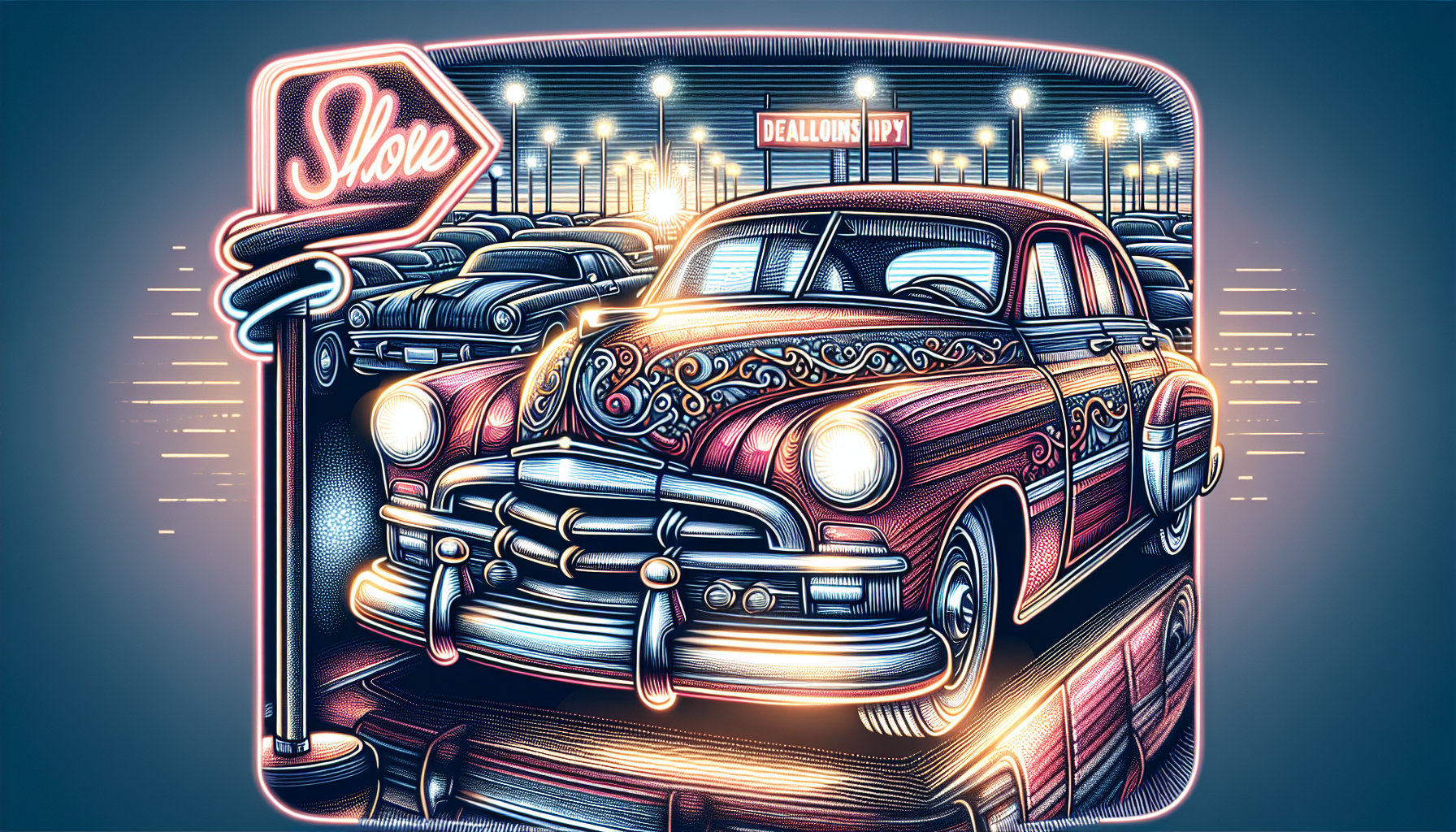
Once you’ve determined the value of your classic car, it’s time to explore the best ways to reach potential buyers. Whether you’re looking for a quick sale or aiming for the highest price, there are several options available. You could opt for a private sale, auction, or consignment dealership. Each has its perks and drawbacks, so let’s dive deeper.
Private Sale
For those who prefer a hands-on approach, a private sale can be a good option. This involves:
- Listing your car on online platforms or local listings
- Dealing directly with potential buyers
- Having more control over the process
- Negotiating the price
However, it also requires you to handle all the legal aspects of the sale.
Remember, honesty is the best policy when describing the condition of your car.
Auctions
Auctions can be an exciting way to sell a classic car. The thrill of the bidding process often attracts collectors and enthusiasts, potentially driving the price up. However, you must be prepared to pay a percentage of the selling price as fees.
Also, remember that setting a realistic reserve price is important. If your car doesn’t run, you might want to adjust the asking price accordingly.
Consignment Dealerships
Consigning your classic car to a dealership can be an effective way to leverage their expertise and network. They handle the following tasks for you:
- Inspection
- Appraisal
- Prep
- Advertising
- Selling of the vehicle
This can save you a lot of work. However, you’ll need to pay a commission to the dealership from the sale.
Preparing Your Classic Car for Sale
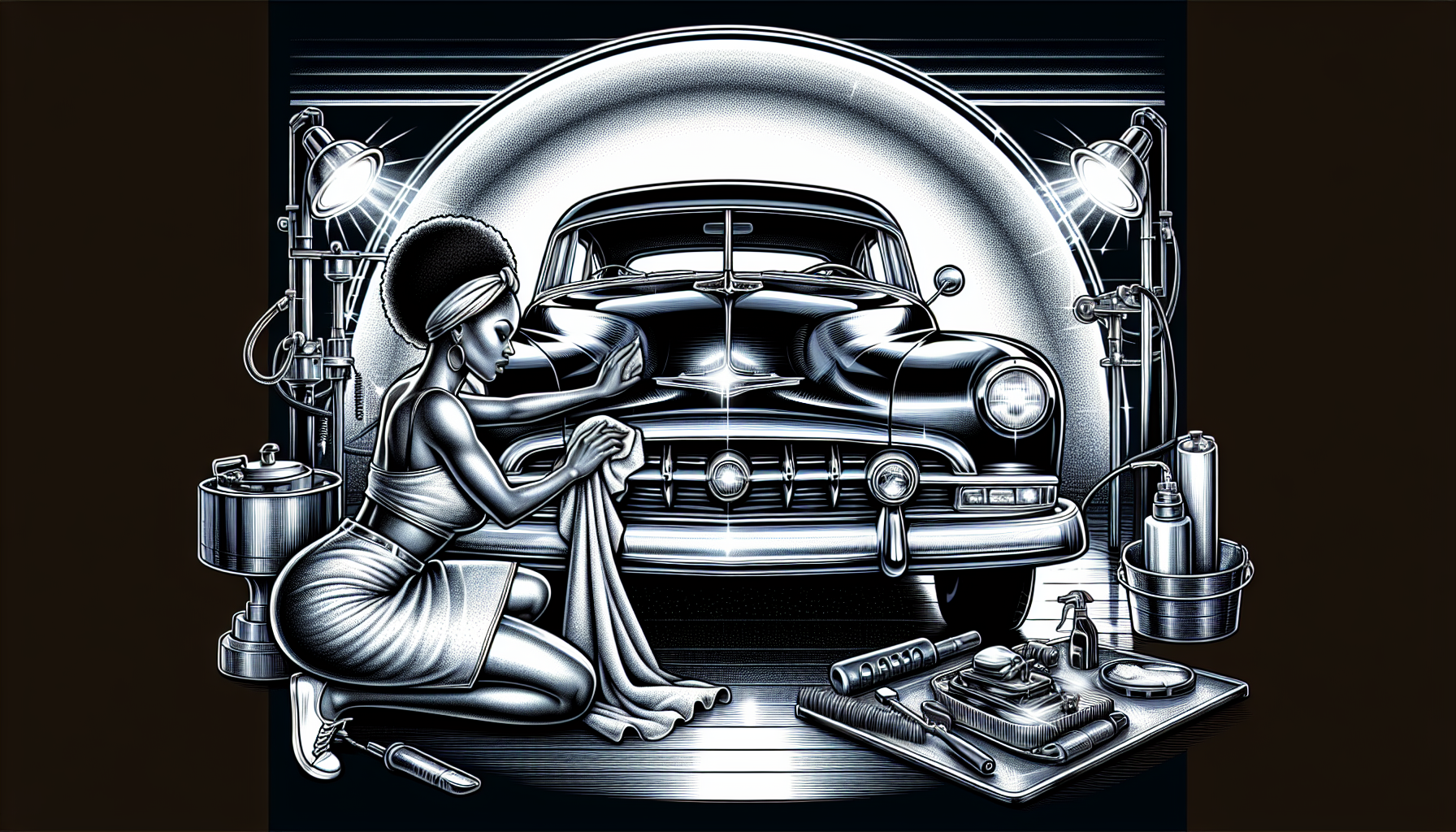
Before you list your classic car for sale, it’s important to ensure it’s in tip-top shape. A clean, well-maintained car can command a higher price and make a great first impression on potential buyers. This involves cleaning and detailing the car, addressing minor repairs, and gathering all the necessary documentation.
Clean and Detail
First impressions count. A clean, well-detailed car can significantly enhance its appeal. Here are some steps to follow:
- Thoroughly wash and wax the car to bring out the shine in the paintwork.
- Vacuum the carpets to remove any dirt or debris.
- Clean the upholstery to remove any stains or odors.
- Wipe down the dashboard and other interior surfaces to remove dust and grime.
By following these steps, you can ensure that your classic car looks its best.
The devil is in the details, so make sure your classic beauty is ready for its close-up.
Address Minor Repairs
Small issues can make a big difference. Take care of minor repairs like fixing dents, scratches, and replacing broken parts. A classic car in good working order is more likely to fetch a higher price. Remember, it’s not just about aesthetics.
Mechanical issues can be a deal-breaker, especially if you end up with a car that doesn’t run, so ensure that everything under the hood is running smoothly.
Gather Documentation
Documentation is key when selling a classic car. Service records, restoration details, and ownership history provide a transparent picture of the car’s journey. It’s a reassurance to potential buyers that the car has been well-maintained and holds a clear history.
Marketing Your Classic Car
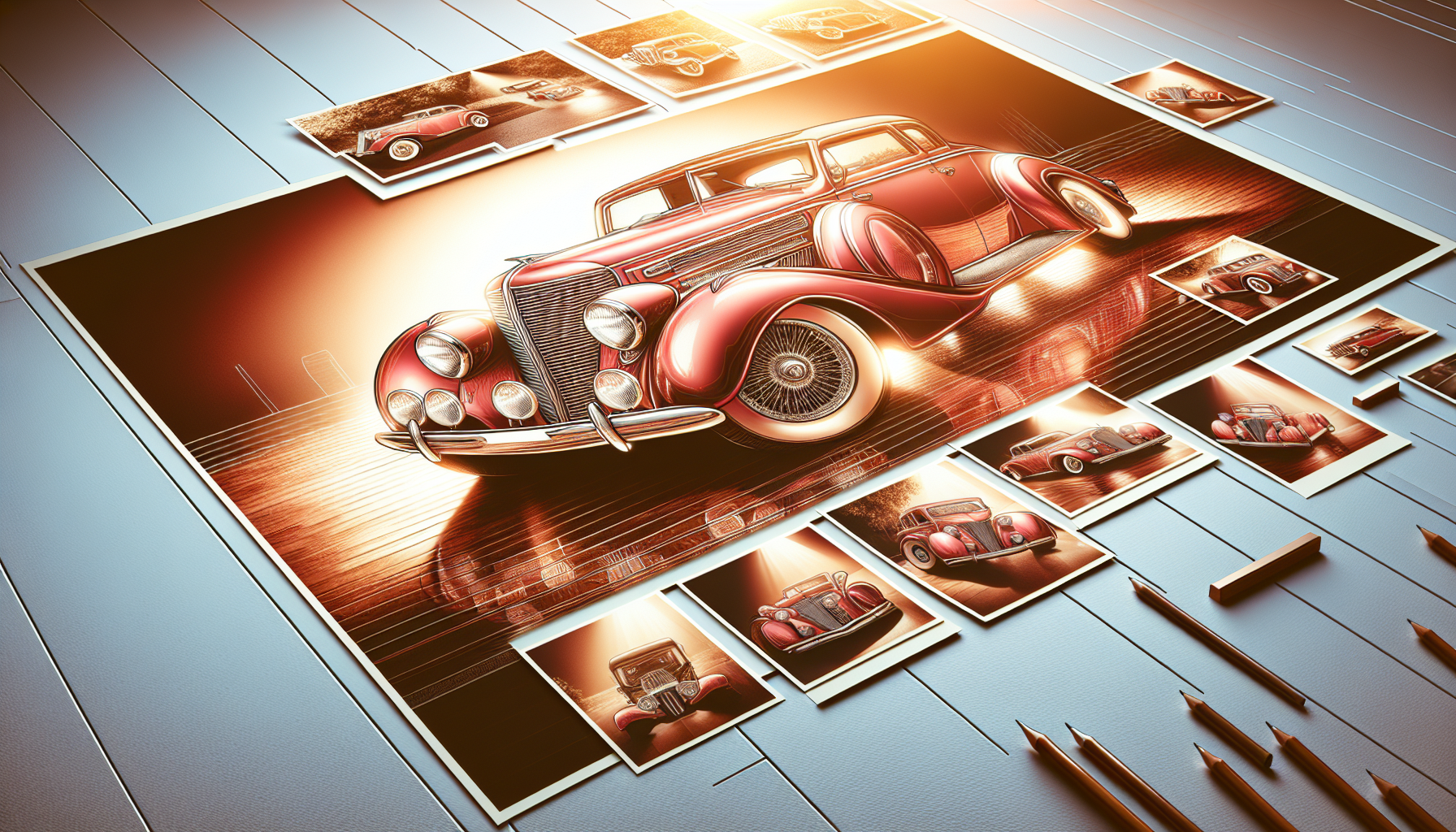
Now that your classic car is ready for the spotlight, it’s time to market it effectively. This involves capturing high-quality photos, writing an engaging description, and leveraging social media and online platforms to reach a wider audience.
High-Quality Photos
A picture is worth a thousand words, especially when it comes to selling classic cars. High-quality photos can make your car stand out in listings. Use a good camera and make sure to take photos in good lighting.
Capture different angles and focus on the unique features of your car.
Engaging Description
The story of your classic car can engage potential buyers and make them feel a connection. In your description, highlight the car’s best features, any flaws, and its history. Be honest and realistic about the car’s condition, but also bring out the charm that makes your classic car special.
Leverage Social Media and Online Platforms
In today’s digital age, social media and online platforms are a powerful tool to reach potential buyers. Post on platforms dedicated to classic cars, such as Classics on AutoTrader and Hemmings.
Social media platforms like Instagram and Facebook are great for reaching a wider audience.
Navigating the Sales Process
The sales process can be daunting, especially if it’s your first time selling a classic car. Being prepared for potential buyers’ questions, setting realistic expectations, and knowing how to finalize the sale are crucial steps in this process.
Be Prepared for Questions
Knowledge is power. Expect potential buyers to have questions about your car’s history, condition, and any modifications. Having all this information at your fingertips will show potential buyers that you are a serious seller.
Set Realistic Expectations
Setting realistic expectations about the price and timeline can save you disappointment and frustration. Be patient and don’t rush the process. It may take time to find the right buyer who appreciates the value of your classic car.
Finalize the Sale
Finalizing the sale is the last step in your selling journey. Ensure all paperwork is completed correctly and both parties are satisfied with the transaction. Remember, a successful sale is not just about the money – it’s about finding a new home for your beloved classic car. Conducting a final inspection can help ensure everything is in order before handing over the keys.
Alternative Options for Disposing of Your Classic Car
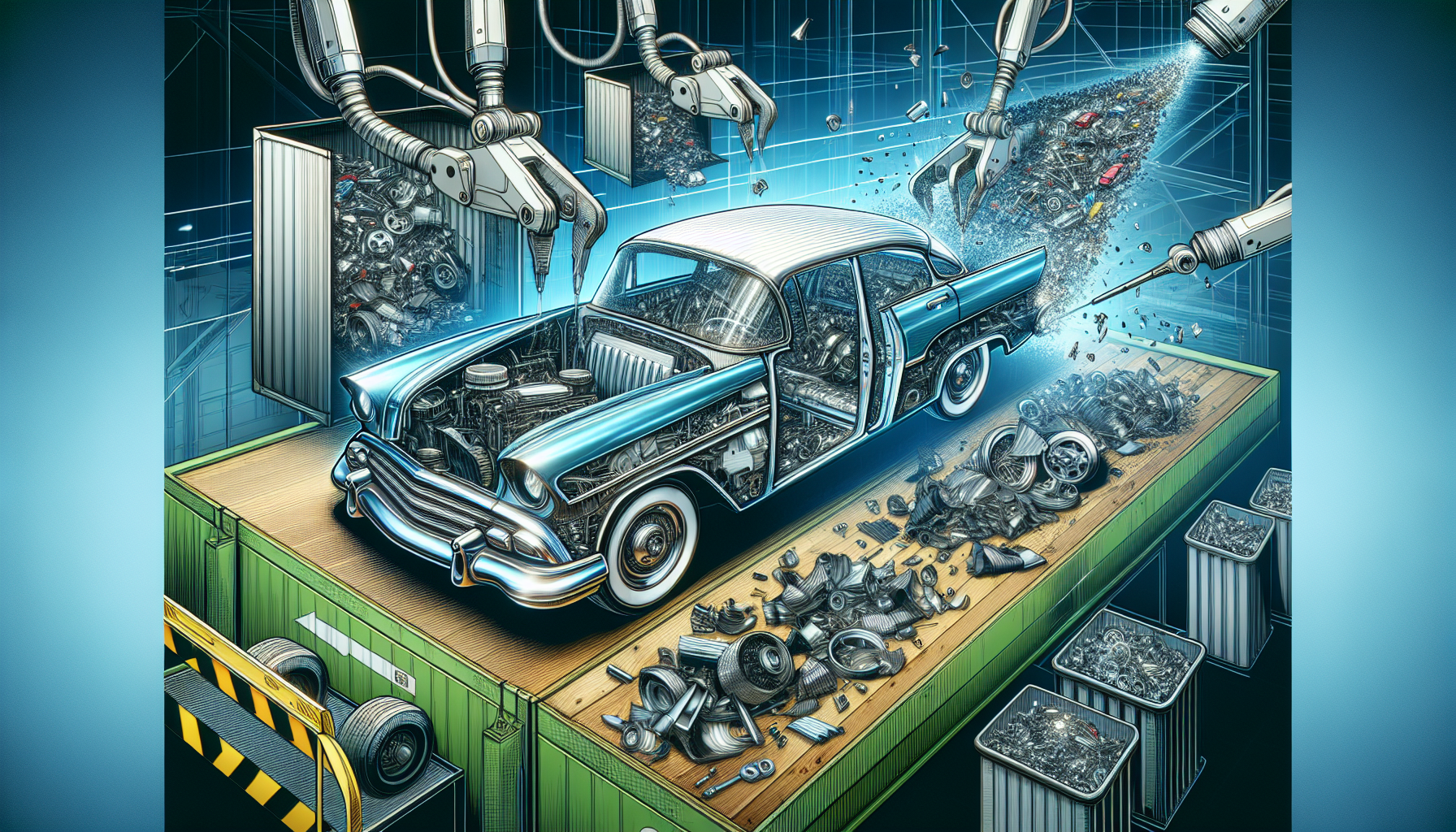
If you’re not quite ready to sell your classic car or you’re unable to find a suitable buyer, there are alternative options. You might want to consider donating your car to charity, selling it for parts, recycling it, or exploring a trade in as options for getting rid of it. Each option could benefit the environment in its own way.
Donating to Charity
Donating your classic car to charity can be a fulfilling option. Not only does it help a good cause, but it can also provide you with a tax deduction.
There are many charities that accept car donations, so you can choose one that resonates with you.
Parting Out
Parting out your classic car involves:
- Selling individual components to collectors or enthusiasts who may need specific parts
- It can be a time-consuming process
- It may yield more profit than selling the car as a whole.
Recycling
Recycling your classic car is an environmentally friendly option. Specialist recycling services, local junk removal companies, and scrap yards can help you dispose of your car in a way that minimizes its environmental impact. Consider using a scrap yard for proper disposal of your classic car.
Summary
Selling a classic car is no small task, but with the right approach and resources, it can be a rewarding experience. From determining the value of your car and exploring selling options, to preparing your car for sale and navigating the sales process, each step plays a crucial role in achieving a successful sale. Remember, every classic car has its own unique story and charm – it’s all about finding the right buyer who appreciates its value and continues its legacy.
Frequently Asked Questions
Are classic cars worth anything?
Classic cars can be worth a significant amount, depending on factors like rarity, condition, and historical value. It’s important to consider various elements, including purchase price, maintenance costs, and potential resale value, before deciding if a classic car is a worthwhile investment for you.
How hard is it to sell a classic car?
Selling a classic car can be quite challenging due to the various considerations, legalities, and the presence of potential buyers who may not be serious. It’s a process that requires patience and attention to detail.
What is the best way to get rid of a car that doesn’t run?
The best way to get rid of a car that doesn’t run is to consider calling a local auto recycling center, junkyard, or junk car buying service. These options will allow you to dispose of the vehicle responsibly and potentially earn some money in the process.
How do I determine how much my classic car is worth?
To determine the value of your classic car, research comparable sales, consult experts, and consider rarity and condition. Use online platforms like Classic.com and Hagerty Valuation Tools for reliable sales data.
How do I prepare my classic car for sale?
To prepare your classic car for sale, focus on cleaning, detailing, handling any small repairs, and organizing all relevant paperwork. This will enhance the car’s attractiveness and potential value.
Get paid cash on the spot for your junk car! Visit carmula.com





 Who We Are
Who We Are Coverage Area
Coverage Area Donate
Donate